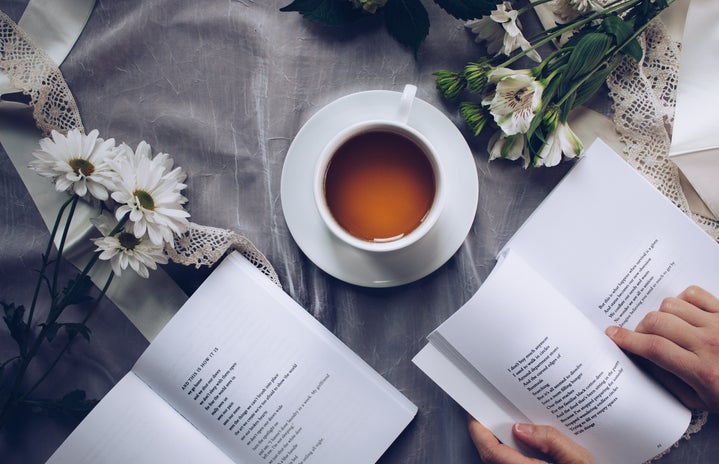Over a casual dinner with some of my friends, conversations about books we’ve read throughout our childhood and teenage years came up. While we enthusiastically recollected about the craze that used to surround some of these series, our older counterparts looked at us as if we were talking in an entirely different language. It was definitely interesting how our generation, Gen Z, all shared this common aspect of our childhood: books. Born and raised in the era of Nokia and iPhone, most of us who are in our late teens and early twenties never had online entertainment like the ones children have nowadays. There was no Youtube or Netflix to fill our boredom. For a good portion of the Gen Z population, books were like the movies we binge now, except written in black and white, with descriptive words shaping the scenes we visualize in our minds.
Feeling the spirit of nostalgia, let’s look back on the books Gen Z grew up on and relive the craze surrounding them.
- John Green books
There is no need for a specification of a title; John Green was The Young Adult Author of our time, churning books about tragedy, friendship and fairytale romance. From Paper Towns to Looking for Alaska, it was just a continuous cycle of teenagers falling in love, navigating their way through the world as they grow into their identities and molds as adults, coping with tragedies and just in general, being teenagers. His breakout novel was The Fault In Our Stars, which tells the story of how a teenage girl with cancer meets a teenage boy with cancer dormancy at a cancer support group. The tsundere nature of the main male character, Augustus Waters, and his poetic perspective on life was probably what built the craze around this book. One of his famous scenes was using a cigarette as a metaphor. As he places the cigarette on his lips, Hazel, the main female character, questions why he smokes when he has cancer. His famous reply:
“It’s a metaphor, see; you put the killing thing right between your teeth but you don’t give it the power to do its killing.”
Even now, the butterflies are fluttering a little in my stomach. How intellectual! How significant! How poetic! And this is how a fandom was formed. The formation of Waters’ character was an exact cut out of how teenage girls in that era romanticized about boys. Combined with the tragic ending, it was an emotional trainwreck for teenage girls with raging hormones. With its tragedy, however, Green does explore the process of grief, and talks about how we can mourn the loss of life as things are taken away from you due to circumstances you cannot control, so perhaps a reread wouldn’t be as cringey as you might think it would be. If you’d prefer movies instead, The Fault In Our Stars came out in 2014.
- Survival Games genre
From The Hunger Games, to Maze Runner, to Divergent, these books that are based around conflict, war, politics, with a touch of romance or interesting divisions between peoples based on personality traits are the perfect recipes needed to attract hounds of teenagers. The adrenaline rush of each scene to the heart-stopping romances that bloom even as the world crashes around them is exactly what every teenager wants in their boring life. Although the genre of dystopian worlds and post-apocalyptic settings became cliche, they do still hold some intrinsic value.
For example, watching Katniss grow up from a fiercely independent but also cynical and resentful teenager into a woman that learns to unwind and heal from her past trauma is comforting. Perhaps teenagers who feel equally trapped or mournful as Katniss can feel that emotional connection with her and hold on to the hope that they too will heal one day. Or the betrayals and friendships Maze Runner portrayed is exactly what teenagers faced: backstabbing and testing loyalties is a way in which teenagers figure out their place in the social realms. In Divergent, seeing Tris grow from a lost girl to a woman who understands herself better than anyone is exactly the type of psychological growth most teenagers grow through. Especially since these series of books come out over the years, it almost always feels like the character is growing up with you, and it just hits a note of forlorn nostalgia.
That being said, the amount of psychological trauma and emotional hurt inflicted upon the characters at such a tender age was never really explored. The consequences of throwing a bunch of teenagers into war are catastrophic and yet all the characters seem to turn out fine. Even if there were hints of mental health explored in books like The Hunger Games, it was never really in-depth or explored in a realistic way, which could have left us with a wrong impression on trauma and its long lasting effects. Nonetheless, as we grew up, more information on mental health was available to us and most of us are self-educated on it. I just wished it was told to us a little earlier.
- The Supernatural: The Mortal Instruments Series
This series might be a bit out of the periphery for some Singaporean teenagers, but for those of us who sunk into fictional realms during our early teenage years as a form of escape, The Mortal Instruments had us on a chokehold the moment it was released. [Spoilers ahead!] Shadow Hunters are a group of supernatural beings who protect mortal humans from unseen forces like vampires, werewolves etc. The Mortal Instruments explores this world, its culture and traditions through the eyes of Clary, who just discovers she is a Shadow Hunter in the first book. It is again about combat, familial relations and friendships and it is just a dystopian world teenagers love to dive into and dream about. My favorite part of the series is the prequels, The Infernal Series, which is decisively features less incest and instead a well-built love triangle and solid friendship. Also, perhaps my judgment is clouded by the fact I just like the main female character in The Infernal Series more than the original.
Most of these books came out shortly after the 9/11 disaster and when things were politically rocky. Exploring ideas of crumbling governments and chaotic social order was intriguing for the creative mind. Yet, now that our world has moved into real, almost dystopian-like world order, with the Russian-Ukraine war and frosty China-US relations, the younger counterparts of our generation are leaning more towards lighter, romantic-comedy books that can provide an escape away from the reality that overwhelms. The dichotomy between how popular books are reflections of socio-political issues and how it was just another crazy chase over the newest trend for our teenage selves is indeed an interesting food for thought.
If you have yet to read any of these books, it may be worthwhile to pick them up and discover how exactly they filled our teenage days with daydreams and youth. If you have read these as a teenager, it’s always fun to go back for a re-read; you might just cringe at all the moments we thought were literary perfection!


